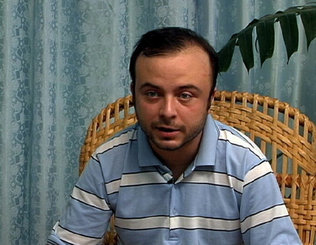
Cuba’s partisan newspaper, Granma, announced that at nine in the morning on October 5 in the city of Bayamo, Granma province, a public trial would be held of a Spanish citizen, Ángel Francisco Carromero Barrios,accused of homicide while driving a car on a public road. Ángel Francisco, 27 years of age and director of the youth organization of the Spanish People’s Party, New Generations,drove a rented vehicle that on July 22 crashed into a tree in Bayamo. Also travelling in the car were Oswaldo Payá Sardiñas and Harold Cepero Escalante, both of whom died. It was not a coincidence but a strategy that they chose a Friday for the court hearing because press agencies logically would be closed on the weekend and that would lessen the repercussion and impact of the news. Also—fundamentally—because two days later, Sunday the 7th, the Venezuelan elections would be held, and events before, during and after those elections would detract from the political relevance of the event, which incites great interest and is under the global magnifying glass the same day as the accident.
But it seems that the Cuban laws have their concept or definition of when a legal proceeding is “public.” If we stick to the letter—not the spirit, of course—of the announcement, it is presumed that the relatives of those killed in the accident and other people interested in the case could be present in the room where Carromero Barrios would be judged, but this was not to be. Yoani Sanchez and her husband, Reinaldo Escobar, left for the event to report on it, but were intercepted and detained upon their arrival in Bayamo.
Dictatorships only know how to behave as such. That is why they also stopped the children of the late Payá Sardiñas when they were a few meters from the city’s provincial courthouse. Why did they impede the grieving offspring from attending if they had announced that the trial would be public? Some news agencies noted that the big police presence around the courthouse suggested that the person being tried was a criminal confined to a maximum security prison.
The abused and musty pretext of Cuban authorities and their spokesmen seems to me stale—as old as the vulgar Stalinist insult used through the years against opponents and independent journalists—that Reinaldo and Yoani had been instructed by the United States Interest Section in order to influence the legal proceedings against the Spanish politician and create a provocative show.
That is something as hackneyed and worn out as it is speculative,and if it did not concern our liberty, or maybe even our own lives, it would be laughable. Governmental propaganda always publicly mistreats its political adversaries within and outside of Cuba and accuses us of being amoral, traitorous or even terrorists.
The objective is to hang on us a placard of misdeeds in order to discredit us. It is a villainy so recurrent that only their naive followers, their poorly paid militants—those with stable jobs, material possessions and trips around the world—and their overseas supporters who perform “gestures of solidarity” whenever there is some setback, hoping for their gratitude, are the ones who still believe it.
The Cuban authorities have taken great care in this process, because of the fatal human injuries that the crash caused and the damages that on top of the participation and responsibility of another unidentified car, exist. The final judgement should confirm if they will use the Spanish citizen as political detergent to wash away suspicions about the government, and try to leave our image of it untainted. Surely they will take advantage of this opportunity to send the message—nothing subliminal—that revolutionary ethics and justice make no distinctions in the application of the law.They want no doubts to remain about governmental innocence and that it was the high speed, the highway disasters and misfortune that sabotaged the pedals and the steering wheel of the car driven by Angel Carromero on that fateful day.
Translated by mlk and unstated
October 16 2012
